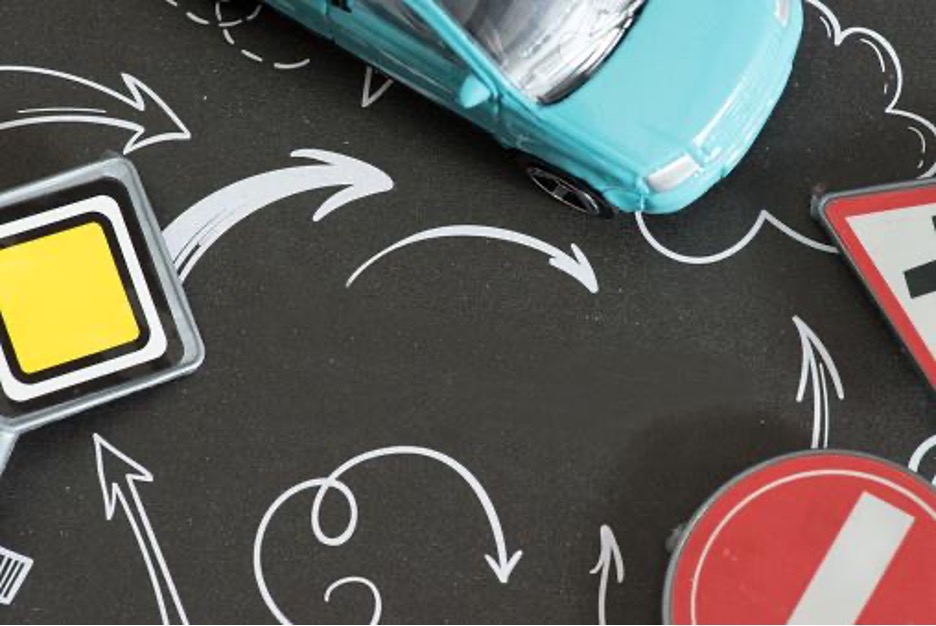In our last entry, we talked about some of the ways that driving laws vary from state to state. In part 1, we tackled traffic laws in states like California, New York and Alabama. Meanwhile, in part 2, we talked about the driving laws in Kansas, Kentucky and Louisiana.
Knowing these laws matters. It is key to avoid getting a ticket and taking a court-ordered traffic school course. So, it is important that you are familiar with the road rules in your home state and the other states you might be visiting.
Now, let’s continue that discussion by looking at the driver’s license point system and other traffic laws in a few more states.
Driver’s License Point System
The driver’s license point system is used in pretty much every state. This system assigns point values to each type of traffic offense. The reason behind this system is to allow each state’s motor vehicle department to keep track of people’s driving records.
The driver’s license point system is not exactly the same per state. Each has its own process and set of rules.
For example, each state chooses how many points to assign to a specific offense. Also, the consequences for acquiring X number of points vary from state to state.
It is worth mentioning that most states observe the same tenets when they designed their system. For example, they assign higher point values to more serious violations. They also hand severe punishments for offenders who accumulate too many points in a short period of time.
Below are the point system rules in certain states:
Maryland Driving Laws
The point system in Maryland is as follows:
- 1 point: speeding up to 9 miles over the limit
- 2 points: speeding 10-19 miles over the limit
- 3 points: speeding 20-29 miles over the limit
- 4 points: speeding 30 or more miles over the limit
- 5 points: reckless driving
- 8 points: DUI
- 12 points: leaving the scene of an accident
Your license will be suspended if you accumulate 8 or more points in 2 years. The length of the suspension varies depending on the number of points you have and how often you have been suspended previously. You may also be required to complete a driver improvement course.
In Maryland, you can be placed on probationary status if you accumulate 4 or more points in 12 months. Probationary status means that you are at risk of having your license suspended if you get any more points. If you are placed on probationary status, you may be required to complete a driver improvement course.
Need to remove points from a citation – take the Maryland online traffic school.
Massachusetts Driving Laws
The awarding of points for traffic violations is the same as in Maryland. However, what happens is different if you accumulate 12 or more points in 3 years – your license will be suspended. Also, the length of the suspension depends on the number of points and suspensions you have incurred.
Reduce your insurance premium – take the Massachusetts defensive driving course.
Minnesota Driving Laws
If you get convicted of a moving violation, you will receive points on your driving record. The number of points you receive depends on the severity of the violation.
The points system in Minnesota is as follows:
- 1-3 points: minor traffic violation
- 4 points: speeding
- 5 points: reckless driving
- 6 points: DWI/DUI
Your license will be suspended if you accumulate 12 or more points in a year. You may need to complete a drivers ed or Minnesota online traffic school course to keep your license.
Mississippi Driving Laws
Some common violations and their corresponding points are listed below:
- 3 points: speeding
- 3 points: running a red light
- 3 points: illegal U-turn
- 2 points: running a red light:
- 5 points: texting while driving:
License suspended? Take the Mississippi online traffic school and remove those points!
Ultimately, you need to know the traffic laws of the state you’re at to avoid breaking them and accumulating too many points on your license.
Other State-Specific Driving Laws You Should Know About
Maryland Driving Laws
Maryland is called the Free State. This is because it was one of the first states in the Union to abolish slavery.
The Maryland Transportation Code governs its traffic laws. Just like other states, Maryland has a variety of state-specific driving laws.
For example, you are not allowed to use your cell phone while driving unless you use it for hands-free purposes or to call 911. Another is that you have to use your turn signal when changing lanes.
Speed limits are also different in Maryland. The highway’s maximum speed limit is 55 miles per hour unless otherwise posted. So, obey the speed limit when driving in the Free State.
Massachusetts Driving Laws
The state of Massachusetts is called the Bay State. This nickname comes from the fact that the state has over 200 miles of coastline on the Atlantic Ocean. The state is also home to the city of Boston, the largest city in New England and one of the largest in the Northeast.
The traffic laws are governed by the Massachusetts General Laws. The Bay State has a few unique driving laws. For example, you must yield to pedestrians at all times.
Speed limits are also different in Massachusetts. The maximum speed limit on highways is 65 miles per hour unless otherwise posted.
Minnesota Driving Laws
Minnesota is known as the North Star State. This nickname comes from the state’s motto, “L’Etoile du Nord,” which means “The Star of the North.” Minnesota is also known as the Land of 10,000 Lakes because it has over 11,000 lakes.
Minnesota is a state where you are allowed to turn right on a red light, as long as there is no sign prohibiting it. You can also make a U-turn unless there is a sign that says you can’t.
Mississippi Driving Laws
Mississippi is known as the Magnolia State. This nickname comes from the fact that the magnolia is the state flower. Mississippi is also known as the Hospitality State because of the warm and friendly nature of its residents.
Here, the laws are governed by the Mississippi Code of 1972. One noteworthy state-specific traffic law is that it is illegal to drive on the beach in Mississippi. Meanwhile, the maximum speed limit on highways is 70 miles per hour unless otherwise posted.
Driving can be tricky in the United States as traffic laws vary per state. This is why it is imperative that you prioritize learning about the road rules of the state you are visiting before getting behind the wheel. It is equally important to practice safe driving habits not just to avoid receiving a citation but also to minimize your chance of getting into an accident.
If you get a traffic ticket, don’t panic, as your license won’t immediately get suspended, especially if the offense is just minor. Moreover, you may even be given the option of removing the points on your license by taking a traffic school course.
Do you need to take a court-ordered traffic school course? Or do you simply want to improve your driving skills? Look no further! We’ve got everything you need! Call us today at (877) 786-5969 or send us a message here to learn more about our driving courses.
Royalty-free Images supplied from PixaBay




